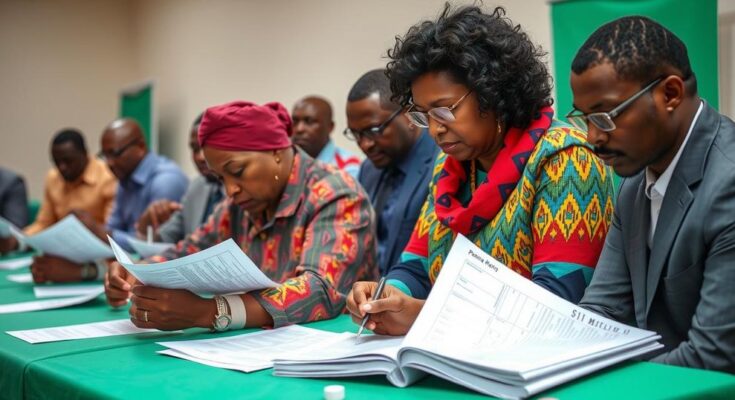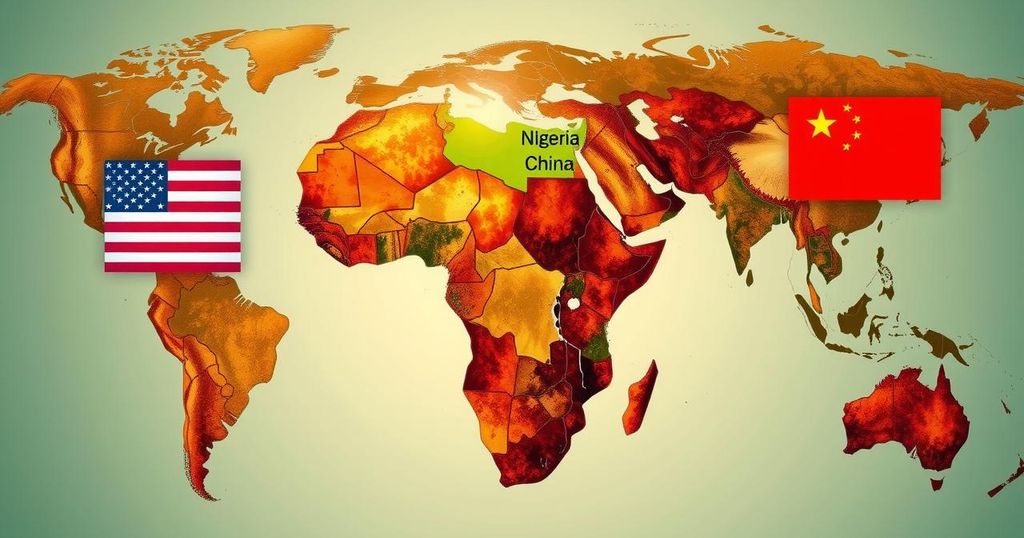Namibia’s Electoral Court has authorized the IPC and LPM to inspect materials from last month’s elections amid allegations of irregularities and electoral discrepancies. Both parties have rejected the election results, asserting that the SWAPO party’s retained majority is unjust. This ruling may lead to further legal action to challenge the election outcome, while the Electoral Commission defends its conduct during the electoral process.
In a significant ruling by Namibia’s Electoral Court, two opposition parties, the Independent Patriots for Change (IPC) and the Landless People’s Movement (LPM), were granted permission to inspect electoral materials from the recent presidential and legislative elections. This legal victory comes amid the parties’ rejection of the election results, which confirmed the continued dominance of the SWAPO party in the National Assembly, albeit with a diminished majority. The IPC and LPM are suspecting electoral irregularities and wish to find validation for their claims of discrepancies during the elections.
The opposition alleges that voter turnout was adversely affected in certain areas due to shortages in ballot papers, but critics assert that while logistical irregularities were documented, these did not impact the election outcomes. According to John Nakuta, a human rights lawyer, the intention of the IPC and LPM appears to be investigating the legitimacy of their claims regarding the elections’ irregularities. Nakuta noted, “They want to investigate as to establish evidence whether there were irregularities and then…come back to ask the court to nullify based on the evidence they would produce.”
IPC representative Imms Nashinge highlighted that this recent court ruling marks merely the beginning of a legal challenge they plan to file shortly. He stated, “We made it clear that we are not accepting anything from this sham of an election from day one…we were not going to accept anything because it violates the principles and values of our democracy.” Meanwhile, Elections Commissioner Pius Iikwambi contended that a prior agreement allowed for inspections, indicating an openness from the commission to address the concerns of the dissatisfied parties.
De Wet Siluka, spokesperson for the Electoral Commission, pointed out that the opposition parties failed to engage during the electoral process, despite being provided with resources to inspect polling stations during the election. The recent elections saw 22 political parties contesting, with SWAPO securing a majority of 51 out of 104 seats in the National Assembly. The court’s decision to allow inspection of election results forms offers a critical opportunity for the opposition to substantiate their claims, though questions remain regarding the potential impact of such inspections on the finalized electoral outcomes.
The recent elections in Namibia have come under scrutiny as opposition parties contest the legitimacy of the results, which confirmed the SWAPO party’s continued governance. With allegations of suppressed voter turnout and irregularities during the voting process, IPC and LPM are seeking to validate their claims through a judicial inspection of electoral materials. This legal battle reflects broader concerns regarding the conduct of elections and democratic integrity in the country, especially as the ruling party retains control despite a noticeable decrease in its parliamentary majority.
The ruling by Namibia’s Electoral Court permitting the IPC and LPM to inspect election materials underscores ongoing tensions surrounding the recent elections. While the opposition seeks clarity and validation for their claims of electoral discrepancies, the Electoral Commission maintains that procedural integrity was upheld. As the opposition prepares to present their case, the outcome of this legal challenge will play a pivotal role in addressing concerns over transparency and democratic principles in Namibia’s electoral processes.
Original Source: www.voanews.com




